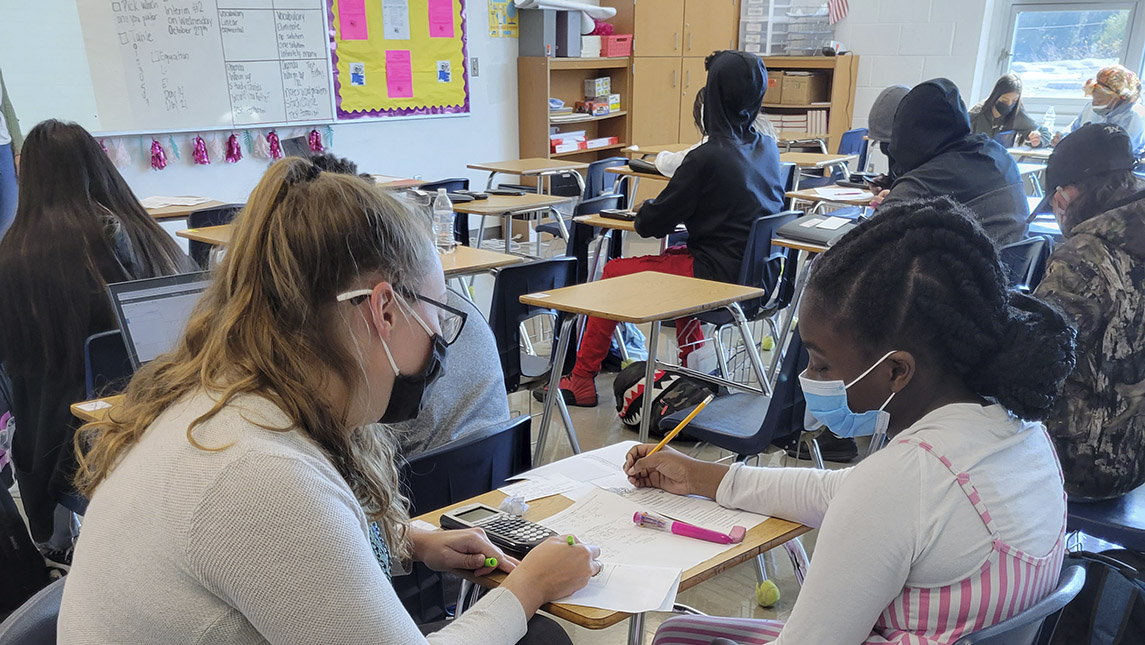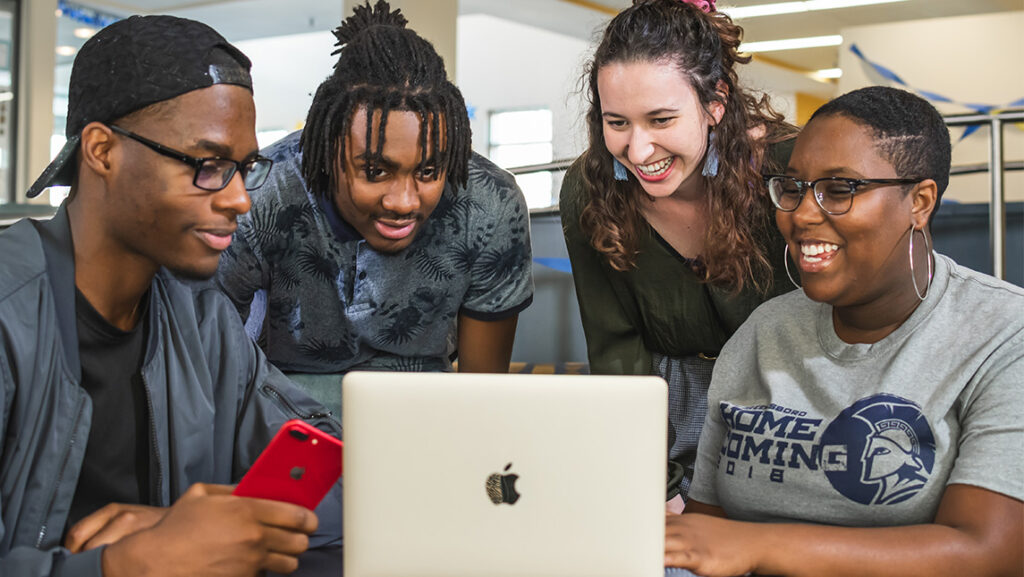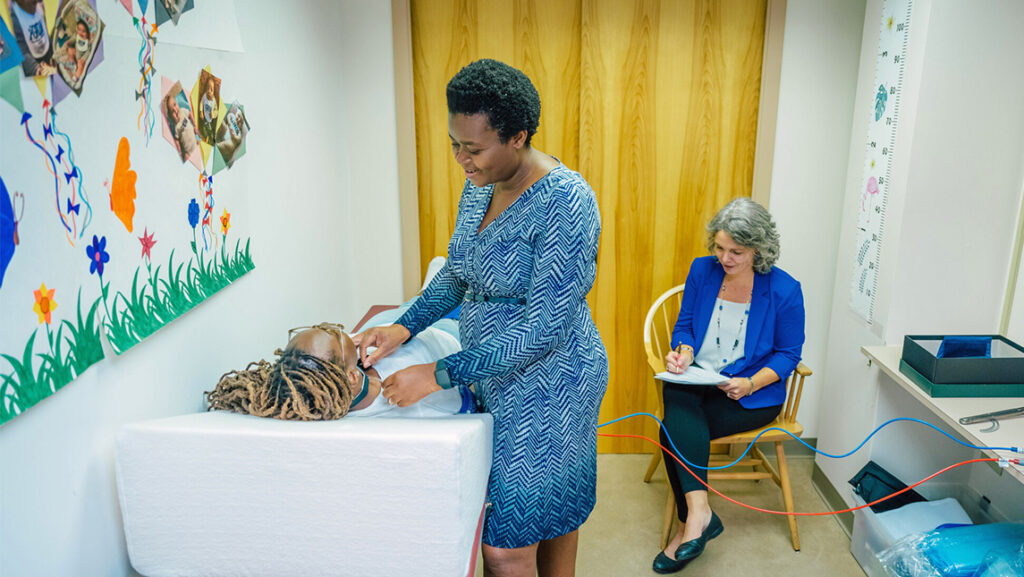UNCG has received national attention for its tutoring program in partnership with Guilford County Schools (GCS), an effort to support families, community, and young students most affected by the pandemic. The Biden Administration named Guilford County as one of 15 school systems nationwide using funds from the American Rescue Plan to their best advantage.
Through the funding, the University’s Institute for Partnerships in Education (IPiE) was awarded a $2 million grant to support graduate assistants with stipends for tutoring in GCS middle and high schools. The tutors work 20 hours a week with students who have fallen behind in the pandemic or are generally struggling. GAs receive financial assistance as they work toward their degrees full-time.
“Given the current financial landscape of higher ed, graduate assistantships are getting cut. This program allows people who couldn’t secure assistantships to still come to school full-time,” says Dr. Holt Wilson, co-director of IPiE and associate professor of mathematics education at UNCG. “We pay full tuition, health insurance, and stipends for all of our tutors, thanks to the Guilford School System’s generosity. They believe the tutors are worth that.”
Aside from the financial support they receive, around 20 international students were provided with visas and the means to study in the U.S. Local students’ exposure to people from across the globe is an added bonus, Wilson says.
Additionally, the graduate students, who will eventually work in varied fields, gain an appreciation for and renewed interest in public education, making them more likely to support it in the future, he says.
The county’s tutors have also included students from N.C. A&T, local high school students, and community members.
Established in 2020 by the UNC Greensboro School of Education (SOE), IPiE facilitates long-term partnerships between the SOE and education-related agencies such as school systems. Wilson and Dr. Faith Freeman are co-directors of the Institute. Freeman was the main architect of the tutoring program, Wilson says. The program required out-of-the-box thinking and cooperation between two government entities.
The model is unique because it is community-based. Most similar tutoring programs are farmed out to private companies, Wilson says. The SOE program benefits the community as well as the GAs and the public school students. The program reached 420 middle school students last year, and Wilson hopes the number will rise to more than 700 this year.
The program uses high dosage tutoring, meaning students meet with their tutor for at least 30 minutes to an hour, depending on their age, at least three times a week. Research shows this tutoring model is most effective at raising student grades, Freeman says. Guilford high school students saw major gains in math, according to WFMY2 news.
The sessions are either one-on-one or conducted in very small groups at school during the school day. The GAs work with teachers to determine what times will work best and what the students are currently learning, to help guide their focus.
About 14 percent of the tutors come from the School of Education, with the rest coming from all 26 departments of the university. Currently, close to 50 GAs are tutors with more being recruited for the spring.
This past year, Guilford County Schools performed very well in all subgroups of state testing, Freeman says. The county first prioritized tutoring in STEM, particularly mathematics, followed by the arts. The new grant will help facilitate an added focus on literacy and science.
The Institute directors hope to expand the tutoring program outside of Guilford County in the near future.
“Anecdotally, we hear with regularity that students who have been traditionally disengaged [after receiving tutoring] have increased engagement, and their grades improve,” Wilson says. In this program, students enjoy regular, repeated positive experiences with mentors. “They feel like someone cares about them.”
Story By Jane Bornhorst for Manning Words, Inc.
Photography courtesy of Guilford County Schools



